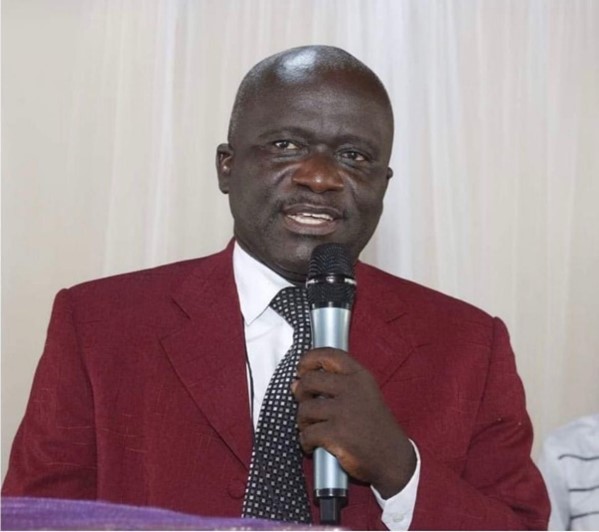The ongoing leadership crisis in Liberia’s House of Representatives has captured the attention of many, including Bishop Kortu K. Brown, a prominent figure in the country’s religious landscape. During an interactive session with 12th graders at the Mother Tegeste Stewart Apostolic Pentecostal School, Bishop Brown expressed his deep concern over the escalating conflict, which has led to significant legislative paralysis. He highlighted that the crisis emerges at a time when ordinary Liberians are grappling with pressing economic and social challenges, raising questions about the appropriateness of the actions being taken by lawmakers. Drawing parallels between the current situation and biblical history, Bishop Brown referenced the story of Judas Iscariot, questioning who among the legislators could be likened to Judas for their disruptive motivations, thereby adding a layer of complexity to the political turmoil.
The Bishop described the tumultuous situation within the House, particularly focusing on Speaker Jonathan Fonati Koffa’s efforts to implement an audit of the Legislature, which some view as a catalyst for dissent among rebellious lawmakers seeking his ousting. Delving into the intricacies of the political strife, he posed rhetorical questions about the true nature of the conflict, Framing it as a necessary inquiry into the intentions of the legislators and the external influences at play. The perceived absence of clarity surrounding the power struggle further complicates the resolution process, leaving students—and the broader public—confused about the implications of such political discord during a critical phase in the nation’s development.
Bishop Brown held that speculation about the motivations of various stakeholders should be unmasked, emphasizing the importance of exposing the vested interests that fuel division within the House of Representatives. He argued that without addressing these foundational issues, the gridlock could lead to long-term instability and ongoing conflicts, akin to a cycle of revenge and retribution detrimental to national governance. Recognizing corruption as a pervasive challenge that deprives citizens of essential services, he welcomed the Liberia Anti-Corruption Commission’s (LACC) initiative to investigate the current allegations, calling for a transparent and thorough review to mitigate the detrimental impact of corruption on Liberia’s society and governance.
Advocating for a compelling resolution, Bishop Brown urged lawmakers to prioritize national interests over personal ambitions and divisiveness. He urged leaders to engage in mediation efforts and encouraged them to embrace the conciliation processes being set up to alleviate the turmoil. Recognizing the potential for constructive dialogue, he emphasized the importance of lawmakers setting aside their differences, asserting that a unified approach would better serve the citizens of Liberia. By fostering an environment of collaboration and understanding, Bishop Brown urged representatives to demonstrate their commitment to the country’s welfare and to maintain the legislative functions vital for governance.
The Senate, responding to the crisis, has formed a mediation committee aimed at reconciling the factions within the House of Representatives, where over 40 lawmakers are divided over Speaker Koffa’s leadership. The legislative sessions are hindered by a lack of quorum, exacerbated by competing factions that have resorted to conducting separate sessions. Meanwhile, Koffa’s continued calls for unity and collaboration have fallen on deaf ears, as they proceed with parallel meetings devoid of the necessary quorum to officially conduct legislative business. This standoff highlights the deep divisions within the legislature, further complicating efforts to restore order and functionality to the House.
As tensions rise, Rep. Foday Fahnbulleh’s declaration to continue formal sessions despite a Supreme Court order not to do so presents a significant challenge to the rule of law in Liberia. This act of defiance reinforces concerns about the House’s stability and the potential consequences of sidelining judicial authority in legislative proceedings. As factions on both sides of the debate prepare for a crucial meeting with the Supreme Court set for November 4, the growing divide raises pressing questions about governance, accountability, and the integrity of Liberia’s democratic processes during an already tumultuous period in the nation’s political landscape. The outcome of these deliberations may set a precedent for the future of the House and its ability to function effectively amidst internal strife and corruption allegations.














